Last month, popular American motorhome manufacturer Newmar found itself at the center of a bizarre whirlwind of confusion. A Canadian couple who, in 2022, reportedly spent $1.35 million on a new Newmar King Aire 4531, recently attempted to sell their coach to a buyer in the United States. But there was a problem: The coach was not allowed to cross into the United States due to an alleged issue with its VIN stickers, and on a subsequent attempt to enter the country, the coach was reportedly seized. This has turned into a much bigger headache, with RV advocates raising the alarm that maybe there’s a widespread issue with motorhomes having ‘missing’ VINs. Here’s what we know about the so-called VIN-gate, and how you can protect yourself.
On September 19, RV consumer advocate ‘Liz Amazing’ published a bombshell video titled “BIG problem with Newmar Motorhomes? | US Govt may take action!” In it, Liz begins by explaining the importance of VINs, saying if your coach is missing its VINs (yes, motorhomes often have multiple), or for whatever reason the VINs cannot be located, then your coach is technically not street-legal. A local, state, or federal authority needs to be able to verify if your vehicle is lawful to drive. This is the case with your car, truck, and motorcycle, too. So far, fairly straightforward.
But then, she goes on to describe the story of the $1.35 million motorhome allegedly seized by the U.S. government.
Liz’s video was not the first on the $1.35 million RV’s halt at the border, as YouTuber AZ Expert posted the first video. However, that video has since been taken down, and it was not archived. For most people, then, they were alerted to this issue through Liz’s video. This story has taken numerous twists and turns since the news broke, but I’ll try to keep it simple by summarizing Liz’s video, which is embedded above.
The $1.35M Coach
This story involves Canadian RVers Brian and Jennifer, who purchased a Newmar King Aire 4531 in 2022 for the equivalent of 1,350,000 USD. If you’re not aware of what Newmar is, the company was founded in 1968 by Marvin Newcomer and Mahlon Miller in Nappanee, Indiana. Newmar has been known for innovations; the company claims that it was the first to build a motorhome with powered slides in 1991. Other pioneering designs by Newmar include one of the first coaches to use full-body paint and one of the first coaches to have a roof-mounted awning rather than an awning secured to the sidewalls. The Newmar Corporation was acquired by Winnebago Industries in 2019.
Newmar is also known for having better quality than the competition, with its steel superstructures, high ceilings, and interiors with high-grade materials. In other words, many RV buyers consider Newmar to be a high-water mark for motorhomes, and people are more than happy to pay over a million dollars to get a coach with that Newmar name on it. This also seems to be part of why this story seems to sting so much for everyone involved.
Anyway, let’s get back to the story here. YouTuber Liz interviewed Brian and Jennifer, so I’ll just relay some of the info she mentions in her video. The Canadian couple told her they purchased the 45-foot-long luxury coach and thoroughly enjoyed it for a couple of years. Here’s what the inside of a million-dollar motorhome looks like:

The video notes that the couple took the coach on trips across the United States, successfully crossing the Canada-U.S. border more than once without issues. This year, the couple decided to sell the coach and chose Southwest Luxury Coaches of Phoenix, Arizona, to sell the coach to.
Brian says in the video that the original plan was that he would import the coach into the United States, and then a driver would meet him on the U.S.-side of the border, pick the coach up, and take it to the dealership in Arizona. Brian says he hired a brokerage company to handle the paperwork with U.S. Customs and Border Protection.
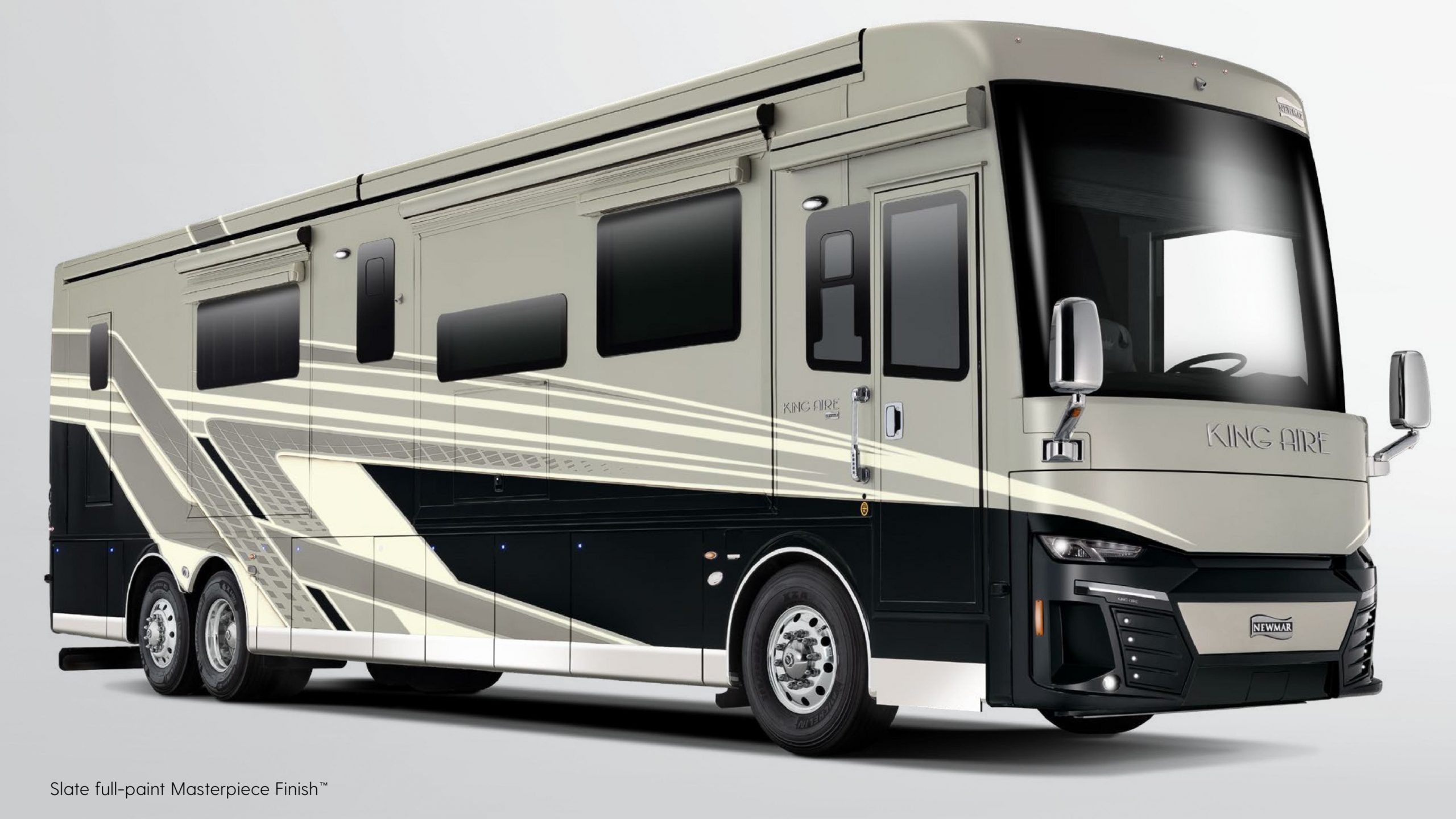
The Failed Importation
According to Brian, in April 2025, he attempted the importation of the motorhome. A Customs agent in Detroit looked over the coach and then eventually got back to Brian, claiming that his broker hadn’t filled out the paperwork correctly. Per Brian, the agent then allegedly said that the vehicle was not compliant with U.S. regulations because the agent thinks “the stickers are fraudulent.”
Per Brian, after a couple of days, Customs seemingly cleared him, then he met up with the driver, and the coach successfully drove to Arizona.
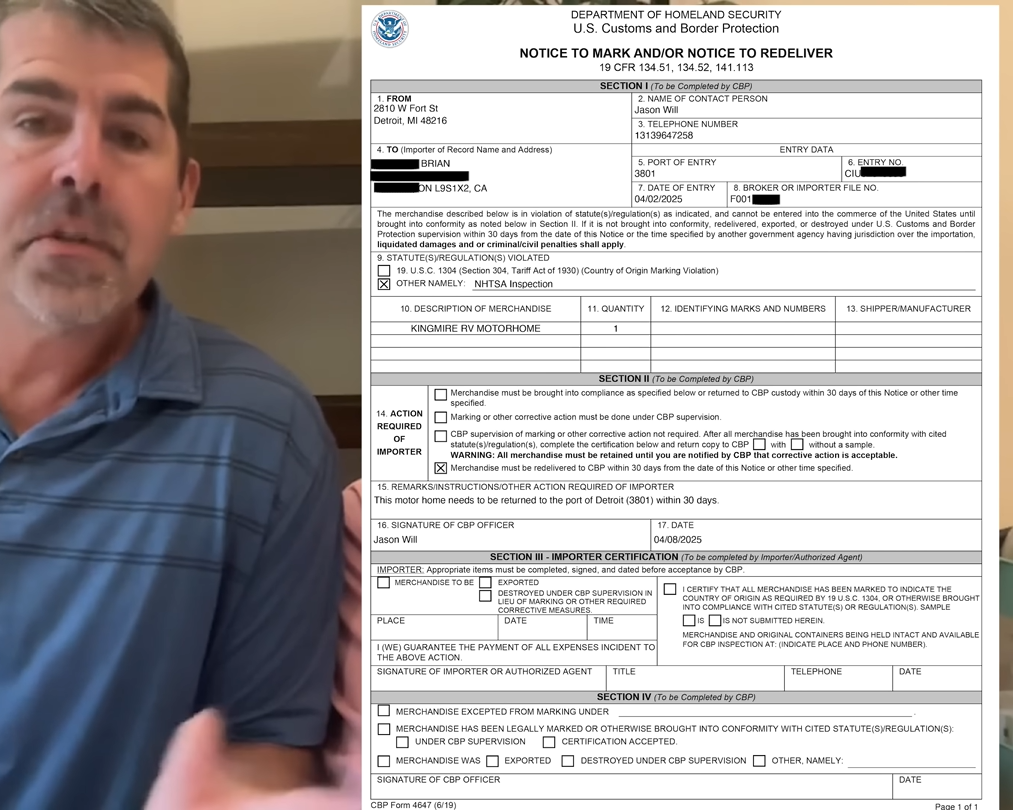
Around 10 days later, Brian says, he got an email from Customs demanding that he return the motorhome to the border crossing in Detroit because Customs ordered the coach to undergo a National Highway Traffic Safety Administration inspection. You’ll see the order in the above screenshot. The coach was sent back to Detroit, and nearly three weeks later, Customs allegedly told Brian that it had been denied entry, and the Newmar was released back into Canada.
The Import Falls Apart, Again
Here’s where things start getting weird. Brian says that, in the aftermath of the failed attempts to import, another plan was cooked up to get the coach to a dealership in Florida.
I have reached out to Scott at Southwest Luxury Coaches for his version of the story.
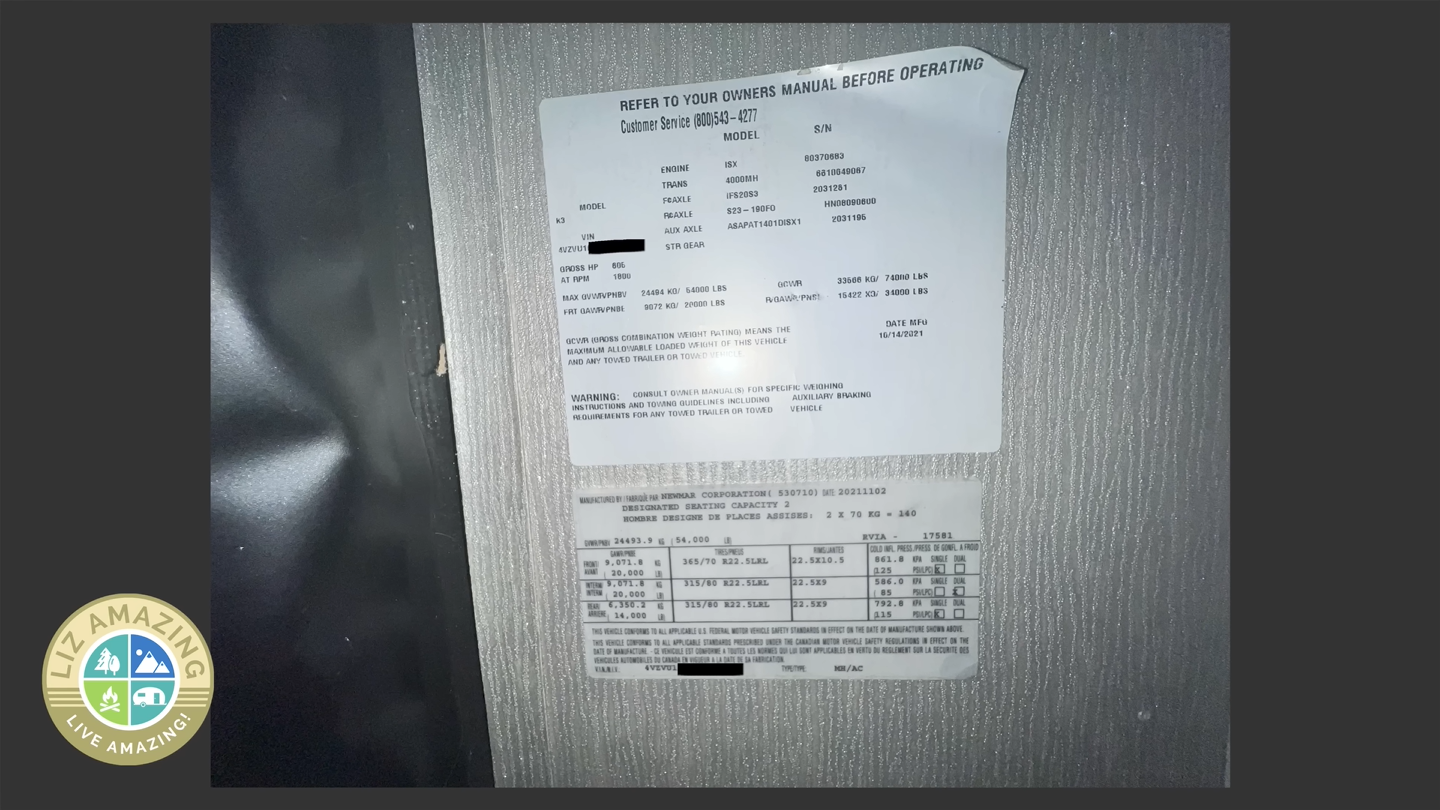
In July, Brian says he attempted to drive the coach through a border crossing in New York, per Liz’s video. Customs allegedly did not let him proceed. Brian says in the video that he admitted to the Customs agents in New York that he was trying to import the coach for a third time. The agent in New York then got an NHTSA inspector, confirmed the paperwork, and then attempted a visual inspection, per Brian.
Per the video, Brian and the Customs agents get Newmar President Casey Tubman on the phone. Together, they attempt, and apparently fail, to find a VIN on the motorhome’s chassis. They then go inside the coach, where they find three VIN labels, which were behind the driver’s seat, on a kitchen cabinet door, and in the rear of the coach. Allegedly, a Customs agent wasn’t fond of what they saw, claiming that none of the VIN stickers had self-destructing features and that none were adhered in a permanent manner.
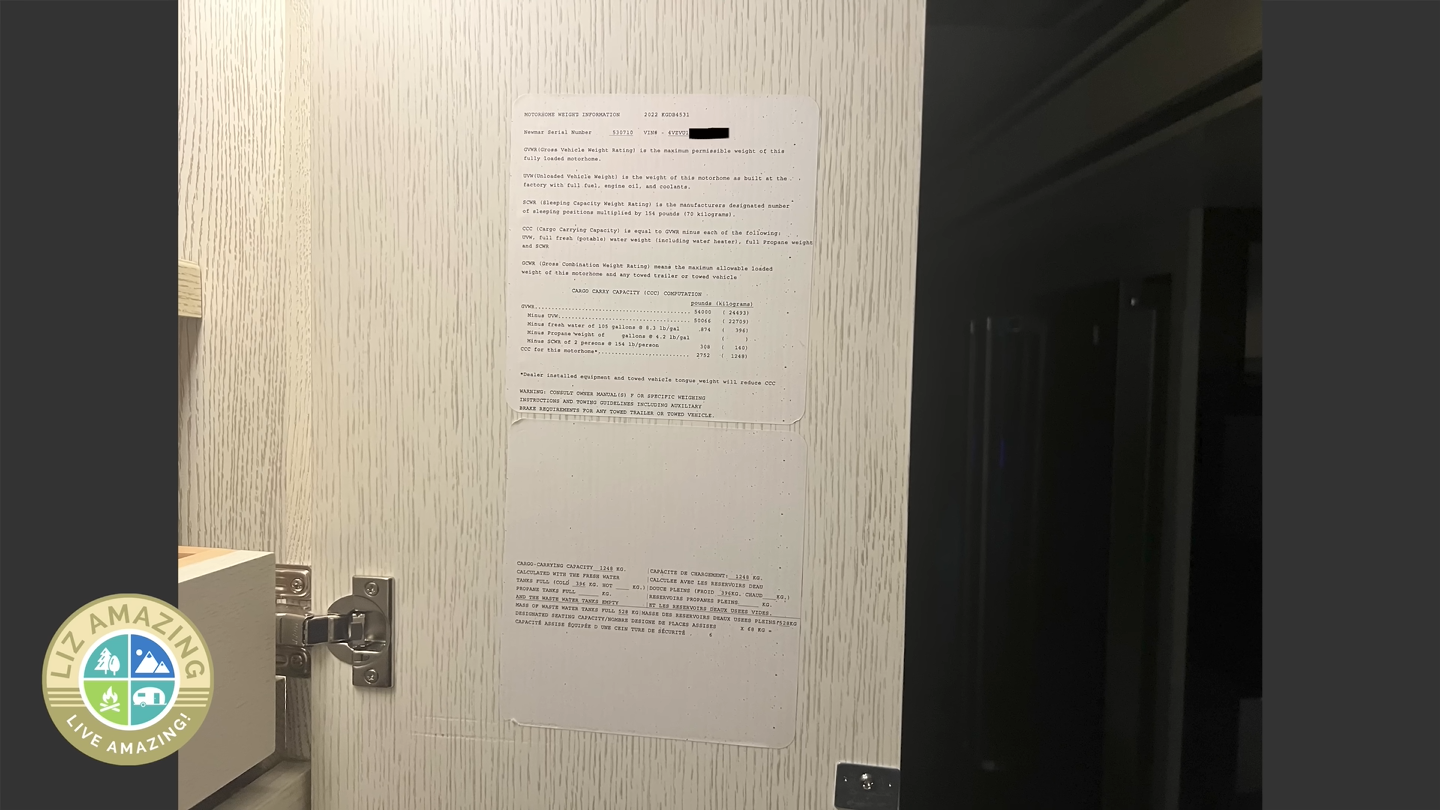
I have reached out to Newmar regarding this incident, and the company’s response comes later in the story.
It Gets Worse
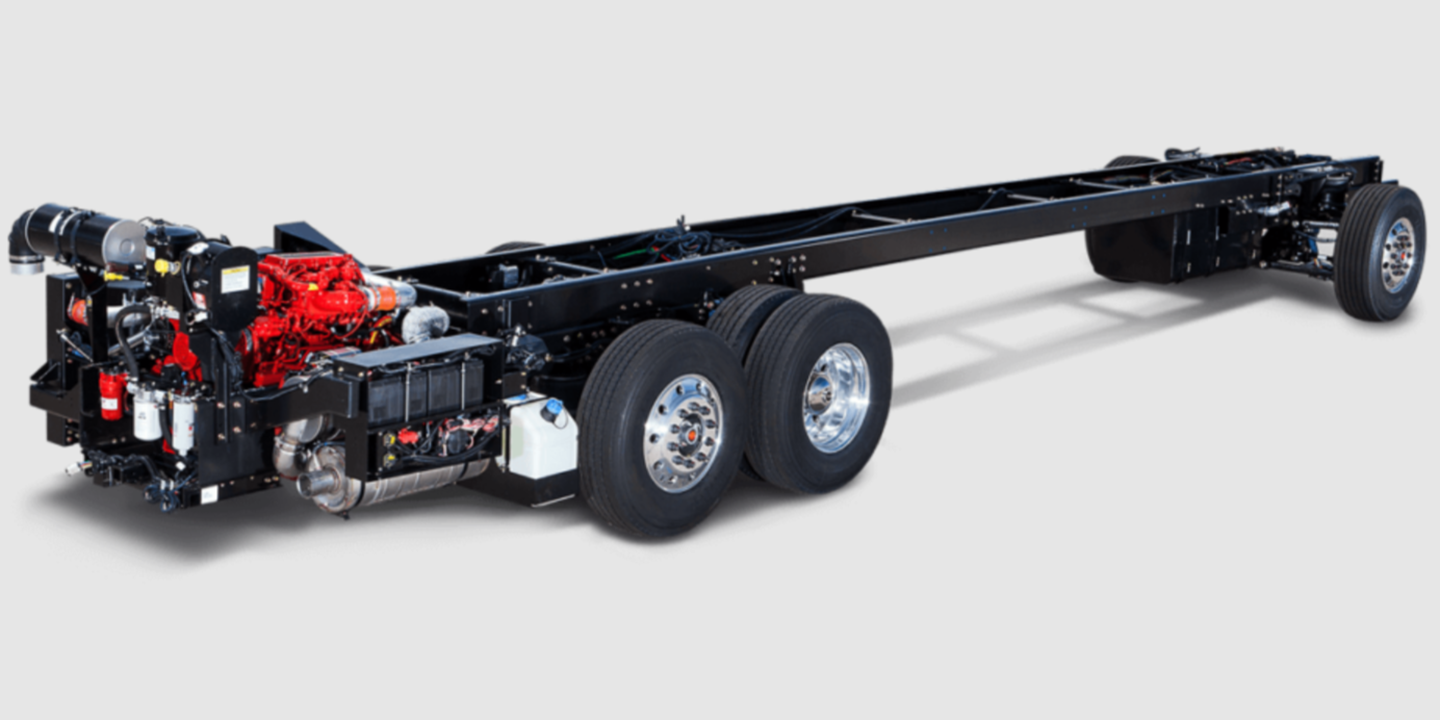
From here, Brian claims, Customs seizes the coach, as NHTSA allegedly wants to investigate if this VIN issue is more widespread. A couple of weeks later, Brian says, Customs has him pick up the coach, and later he receives a CBP penalty notice in the mail, which accuses Brian of attempting to import a vehicle without a compliant VIN. The penalty associated with this is $660,000. Brian claims that later, he was told that a Customs supervisor had found four Newmar coaches at a dealership with supposed VIN issues, and that the U.S. government was supposedly preparing an action against Newmar.
This has blown up into a huge firestorm reaching well beyond this single incident. The implication is that there could be a widespread VIN issue across the RV industry, and not just Newmar. Liz Amazing is calling it “VIN-gate.” Watch her video if you want to know the full story. Otherwise, you’re pretty much up to speed. Now, I’m going to try my best to explain what I have found to be going on here.
What’s Going On Here
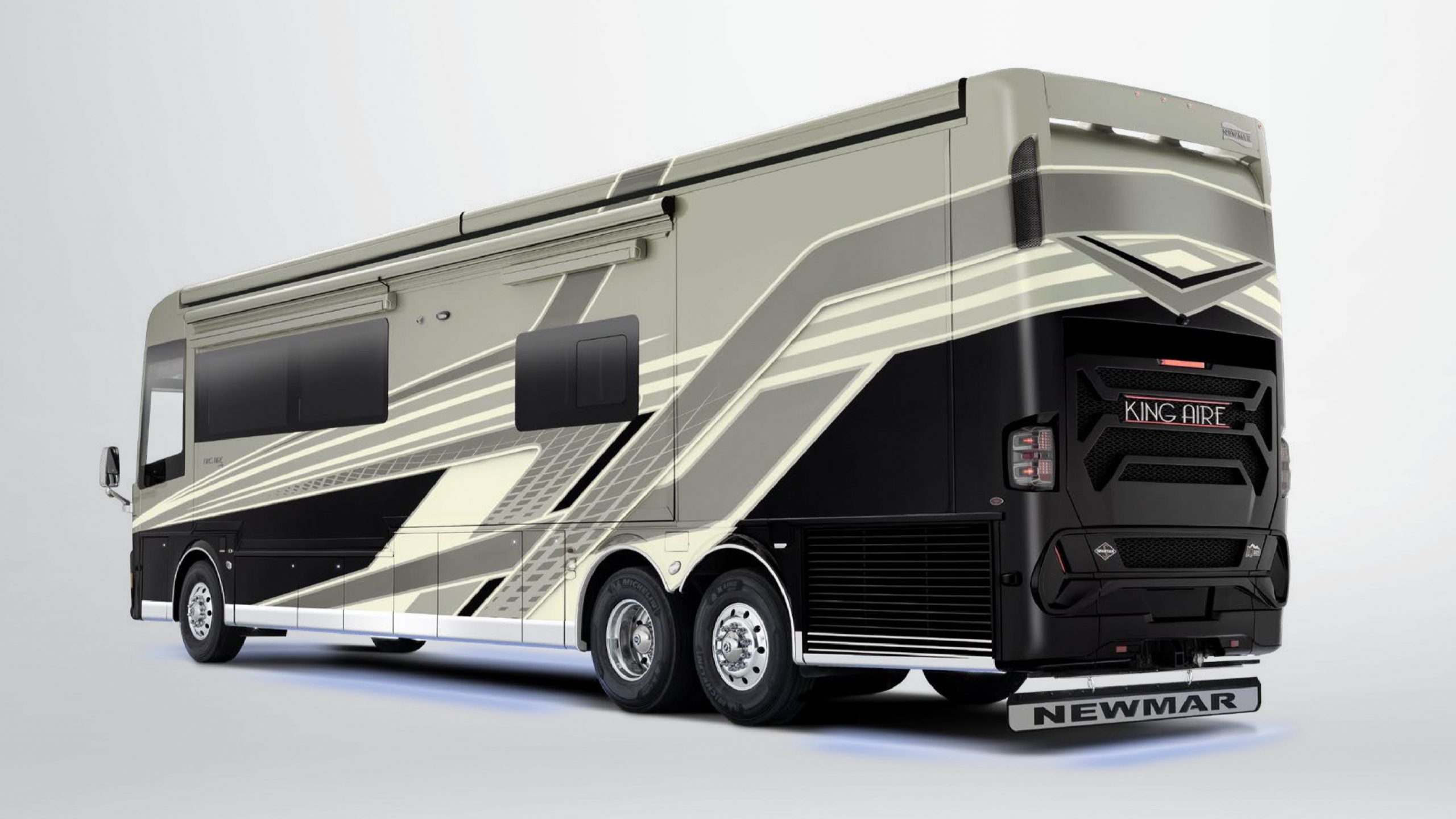
First, let’s talk about the incident in New York.
The video suggests that the plan was to drive the coach to Florida, and then have the dealership and Newmar handle the rest. If this plan did not involve following through the import procedure at the border, this would have resulted in the motorhome being an illegal import. The importation has to be done at the time of entry. Yes, some states will transfer a Canadian title without the proper paperwork, but that doesn’t make the vehicle legal on the federal level. That is per my own conversations with Customs officials in the past.
None of the other sites that have reported on this have pointed out that the final attempt to import the Newmar was probably doomed from the start. If you’re wondering how big this VIN thing has gotten, even prominent car attorney, Steve Lehto, has also reported on this story:
In the United States, you are assumed to know the law. Sadly, this means that, while Brian might not have known about American import law, that wasn’t enough to get the government off his back. Even worse is that if your Customs broker messes something up, you’re the importer of record, not your broker. Thankfully, Brian was not necessarily fined $660,000, at least, not yet. He was only noticed of the violation and the penalty, and has the right to fight it. Brian has indicated that he has lawyered up.
Newmar Responds
At the end of her video, Liz says that Newmar and its parent company, Winnebago, did not respond to her request for comment. Newmar responded to Liz’s video with a firm rebuttal, stating that they responded a day before she published the video. This is the message that Newmar says it emailed to Liz:

Thank you for reaching out. We appreciate all that you do to advocate for RV owners. Unfortunately, I don’t believe you have all the facts regarding the incident with Mr. Warner and Mr. Buchanan (the purchasing used RV dealer).
Newmar does not discuss the specifics of warranty cases or customer inquiries outside of the direct customer relationship. However, I can share that I have already addressed these false claims publicly on the Endless RV YouTube channel. I would encourage you to watch my response, which can be viewed here. You can also refer to our post on our company social media platforms, linked here.
To be clear: All Newmar RVs, including RVs built on Spartan chassis, are in full compliance with all regulatory requirements. If you read Title 49 of the Code of Federal Regulations Section 567.4, linked here, particularly Sections (b) and (c), you can understand the requirements. These require that the final complete vehicle have a permanent label with the full 17-digit VIN and are different from the requirements applicable to passenger cars, MPVs, and light medium duty vehicles, which may require additional etching or stampings. In Newmar’s units the chassis VIN is permanently affixed behind the driver side seat on the column in each unit. As a courtesy, the chassis VIN number is also located on labels in the kitchen and closet.
Although this is not a requirement, chassis manufactured by Spartan also have the last five digits of the VIN stamped on the chassis in four locations: once on the main chassis frame rail behind the steering axle tires, both passenger and drivers’ side, and the same behind the drive axle tires.
Since 1968, Newmar has been the pinnacle of luxury, comfort, performance and design. We are passionate about what we do. Our love for the outdoors drives us to deliver standard-setting quality, durability, safety and reliability to the products we make. To that end, over the years, tens of thousands of Newmar owners have successfully traveled between borders without issue and they continue to do so, confidently.
If you are concerned with representing the issue fairly and accurately, I recommend you dig deeper into the stories from both the dealer and customer involved. The incident in question happened in May and is not a new ruling or law. Additionally, we are but one manufacturer using Spartan chassis, and to my knowledge, no other manufacturer has discovered any issue related to international crossings. In terms of communication with the consumer in question, Newmar was in direct communication, was then advised that the consumer retained counsel, and have been communicating appropriately since.
As one commenter in the iRV forum shared “I believe this supposed VIN issue is the creation of misunderstood “facts” or non facts. No one has explained the facts surrounding the seizure of a coach entering the US. This is one more example of overreaction to something without having the facts. I have a cousin who is a Customs Supervisor and he indicated if any seizure took place it was a lot more serious that a VIN number not being found. Enjoy your coaches!!”
Our commitment to our customers is unwavering and we stand behind every product we build. If any customer has a concern with a Newmar coach, all they need to do is contact us. We are here to help.
Liz, thank you again for reaching out.
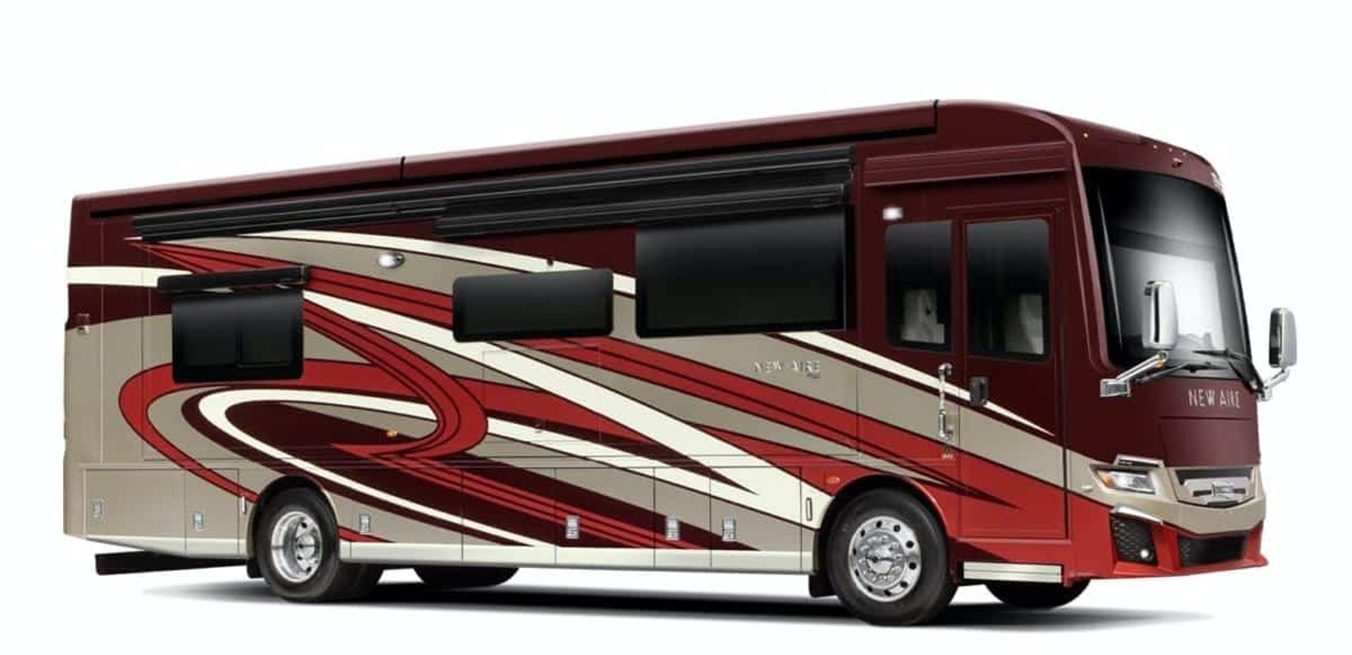
Newmar then published a blog post, which states:
All Newmar RVs, including RVs built on Spartan chassis, are in full compliance with all regulatory requirements as outlined in the Code of Federal Regulations.
In Newmar’s units, the chassis VIN is permanently affixed behind the driver side seat on the column in each unit. As a courtesy, the chassis VIN number is also located on labels in the kitchen and closet. The stickers are designed to be tamper resistant and leave evidence of removal and are therefore considered permanent.
As a standard practice we continue to partner with our chassis supplier, outside counsel and NHTSA to ensure our continued compliance.
While regulations are often misinterpreted, as a second-stage manufacturer, we fully comply with all applicable standards—which differ from those governing single-stage, such as auto and commercial vehicle manufacturers.
Newmar then discussed Brian’s attempted border crossings. Brian doesn’t make it clear who cooked up the idea to get the motorhome to Florida, but Newmar says it was the dealership in Arizona. From Newmar:
After Newmar attempted to provide assistance, Mr. Warner decided to follow Southwest Luxury Coach’s suggestion (a non-authorized Newmar dealer) to attempt importing his coach into the country again, in a manner which was misaligned with Newmar’s values. Subsequently, the government fine was issued to Mr. Warner.
As I said before, this has spiraled into something huge. Liz published a follow-up video, where she explains that she wasn’t trying to mislead viewers, but that she missed the message was an unfortunate case of poor timing. However, she doubled down on the non-compliant VIN allegations and added more details, which we’ll talk about in a moment.
About Those VINs
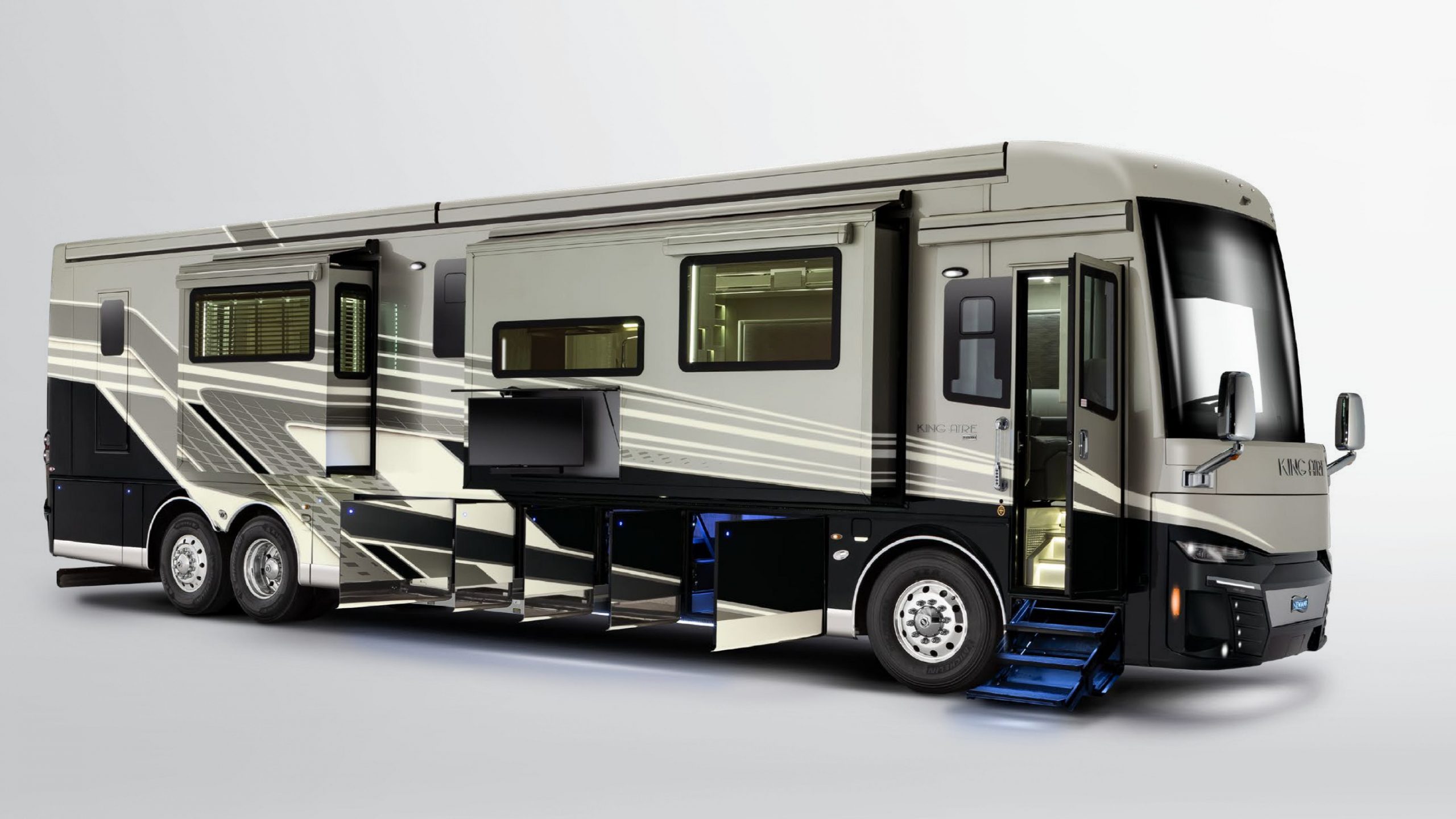
I spoke with and had an email conversation with Daniel Sullivan, Director of Communications at Winnebago Industries, which owns Newmar. During our conversation, we talked about the VIN on the chassis and inside the coach. Newmar is like most motorhome companies, and it does not build its own chassis. Instead, it receives chassis from manufacturers like Freightliner and Spartan and builds its coaches on top of them. Spartan currently supplies chassis to Newmar, Jayco, Entegra, and Foretravel.
Newmar and Spartan both say that their vehicles are fully compliant with regulations on VINs, and that, at this time, neither is aware of any pending investigations, lawsuits, recalls, or government action being taken outside of the issue surrounding Brian’s specific unit.
Daniel tells me that it is true that Spartan affixes the last five digits of the motorhome’s VIN to the chassis. However, Daniel disagrees with the border agent from Brian’s story about the main VIN sticker inside the coach. Newmar is firm on its statement that its VIN stickers are self-destructive, as they legally have to be.
Daniel also disagrees with the alleged statements about the sticker being adhered to removable wallpaper.
As I have written in the past, RV wallpaper, at least when it’s applied to a perimeter wall, is more of a bonded material and not a true wallpaper, which Daniel tells me is the case in a Newmar as well. You should not be able to just rip it off the wall like you could the wallpaper in your home. Daniel says that the VIN sticker behind the driver’s seat is attached to that permanent material, and thus, it should be compliant with the law.
Here’s the official statement from Newmar that Daniel sent me:
Newmar’s VIN labels are in compliance with U.S. law
– All Newmar RVs, including RVs built on Spartan chassis, are in full compliance with all regulatory requirements as outlined in the Code of Federal Regulations.
– In Newmar’s units, the chassis VIN is permanently affixed behind the driver side seat on the column in each unit. As a courtesy, the chassis VIN number is also located on labels in the kitchen and closet. The stickers are designed to be tamper resistant and leave evidence of removal and are therefore considered permanent.
– As a standard practice we continue to partner with our chassis supplier, outside counsel and NHTSA to ensure our continued compliance.
– While regulations are often misinterpreted, as a second-stage manufacturer, we fully comply with all applicable standards—which differ from those governing single-stage, such as auto and commercial vehicle manufacturers.
– Newmar is not party to any legal action nor is there any government action such as a recallNewmar owners can cross the border with confidence
– Newmar’s coaches cross the border every day without issue, whether for tourism or sale. Over the years, tens of thousands of Newmar owners have successfully traveled between borders without issue and they continue to do so.
– But, if a customer would like to sell their coach across an international border we recommend they fully understand the requirements of such a sale and use a reputable dealer and customs broker.
– Multiple other manufacturers also use a Spartan chassis, and to our knowledge, no other manufacturer has had any issue related to international crossings. To our knowledge, this is the first and only time this has happened in Newmar’s 57-year history.This situation underscores both our commitment and our challenge. While we will always stand behind our products and support our customers, we cannot control every decision made once the vehicle leaves our hands. However, what we can promise—and what we deliver every day—is a dedication to quality, reliability and customer service. This commitment is unwavering and should give our customers confidence in our support.
What Does The Law Say?
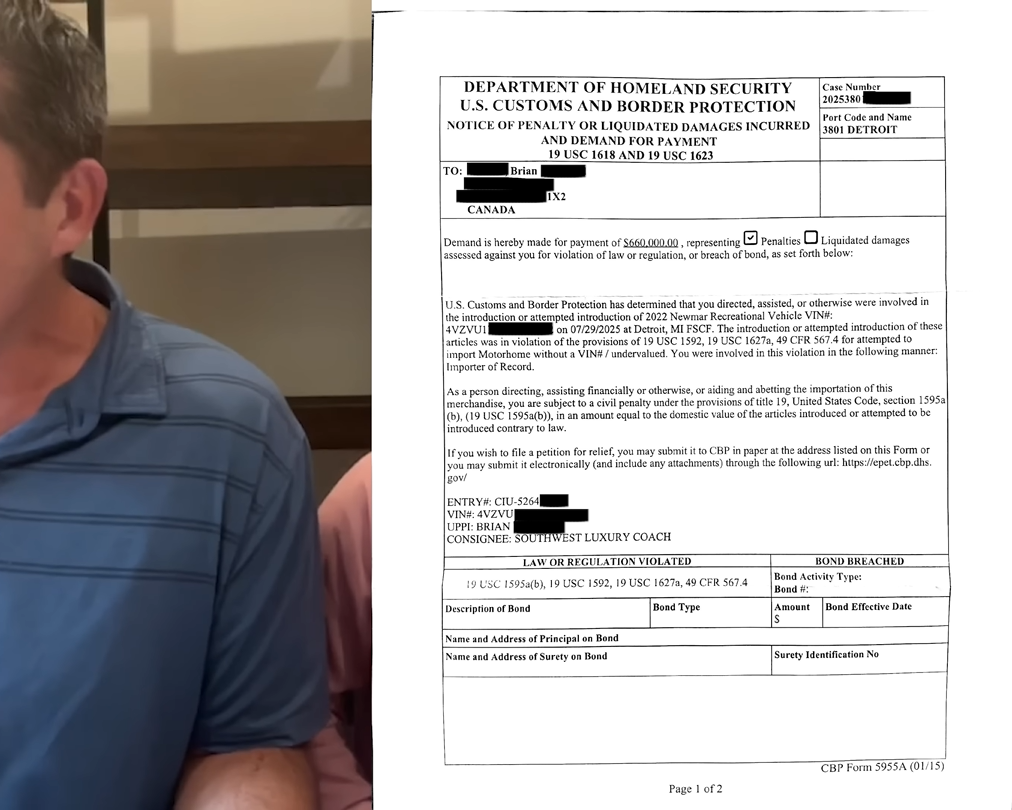
Now, let’s look at the Notice of Penalty that Brian received, which is screenshotted above. Customs claims that Brian violated 19 USC 1595a(b), 19 USC 1592, 19 USC 1627a, and 49 CFR 567.4.
19 USC 1595a(b) is Aiding Unlawful Importation, 19 USC 1627a is the Unlawful Importation of Certain Vehicles, and 49 CFR 567.4 is the VIN labeling requirement. 19 USC 1592 sets penalties for fraud, negligence, and gross negligence. We’ll focus on the VIN part, but feel free to read the others if you want some dry reading for your day. The relevant portion of § 567.4 Requirements for manufacturers of motor vehicles, is the first three statements:
(a) Each manufacturer of motor vehicles (except replica motor vehicles and vehicles manufactured in two or more stages) shall affix to each vehicle a label, of the type and in the manner described below, containing the statements specified in paragraph (g) of this section.
(b) The label shall be riveted or permanently affixed in such a manner that it cannot be removed without destroying or defacing it.
(c) Except for trailers and motorcycles, the label shall be affixed to either the hinge pillar, door-latch post, or the door edge that meets the door-latch post, next to the driver’s seating position, or if none of these locations is practicable, to the left side of the instrument panel. If that location is also not practicable, the label shall be affixed to the inward-facing surface of the door next to the driver’s seating position. If none of the preceding locations is practicable, notification of that fact, together with drawings or photographs showing a suggested alternate location in the same general area, shall be submitted for approval to the Administrator, National Highway Traffic Safety Administration, Washington, D.C. 20590. The location of the label shall be such that it is easily readable without moving any part of the vehicle except an outer door.
§ 565.13 General requirements describes where the VIN has to be:
(e) The VIN of each vehicle shall appear clearly and indelibly upon either a part of the vehicle, other than the glazing, that is not designed to be removed except for repair or upon a separate plate or label that is permanently affixed to such a part.
(f) The VIN for passenger cars, multipurpose passenger vehicles, low speed vehicles, and trucks of 4536 kg or less GVWR shall be located inside the passenger compartment. It shall be readable, without moving any part of the vehicle, through the vehicle glazing under daylight lighting conditions by an observer having 20/20 vision (Snellen) whose eye-point is located outside the vehicle adjacent to the left windshield pillar. Each character in the VIN subject to this paragraph shall have a minimum height of 4 mm.
NHTSA says that an incomplete vehicle needs to have a data label that has, among other things, the VIN. Manufacturers like Freightliner print the full VIN on a data plate attached to the chassis near the engine.
Liz Amazing asserts that RVs must have their full 17-digit VINs etched or riveted to the coach chassis. If this is true (and Newmar claims it’s not true), Newmar is not compliant with the partial VINs its chassis have:
An easy solution to this concern, I think, would be for Spartan to start etching all 17 digits into the chassis.
The Additional Concern
It appears that the biggest issue here is with the locations of the VIN stickers and whether or not they are actually permanently affixed and are self-destructing.
Brian says in Liz Amazing’s video that he sent pictures to Liz — pictures that suggest that his coach does not have any VIN on its chassis. The Customs agents and NHTSA agent who inspected his coach then allegedly believed that the stickers were not compliant because they were not self-destructive and that they were mounted to allegedly easily destroyed surfaces.
In my conversations with Daniel, it was agreed that there could be something wrong with Brian’s coach, and he told me that Newmar is complying with the authorities. However, since Newmar is not willing to comment in greater detail, we do not know the extent of Brian’s issue outside of his story and the paperwork he has been willing to show thus far.
The bigger issue being brought to light by RV advocates is the idea that there could be a wider problem with VINs, as has been reported in various publications. If Newmar’s VIN stickers are not permanent and are not self-destructive, that would violate the above regulation. Likewise, there is concern about whether Spartan’s stamping of only the partial VIN is either useful or compliant. If these VIN practices aren’t legal, then that could mean thousands of motorhomes, spanning multiple brands, are not legal.
Unfortunately, since everything I’ve reported on thus far has come through secondary sources, I cannot say whether the VIN stickers in Brian’s coach were compliant or not. Honestly, I think Newmar and Spartan could both gain some goodwill pretty easily. Offer to give everyone a riveted VIN plate. This headache would probably evaporate relatively quickly.
Through some additional research, I have found that, somehow, some even weirder VIN issues sometimes happen across RV brands. In the wake of Brian’s story, one iRV2 user says that their Jayco Class A motorhome had VINs that did not match their title, and no VIN on the chassis, and posted pictures for proof. Allegedly, some other people are claiming to have found non-matching VINs in Forest River and Tiffin Class A motorhomes, too. Liz Amazing says that she has received an outpouring of responses from people saying that their coaches from a variety of brands and years are missing a VIN in one way or another:

Now, it should be noted that it is common for motorhomes to have two different VINs, because the underlying van or truck chassis has its own VIN, and the “house” built on it has a VIN as well. However, the chassis and house VINs that are present should match your documents and the other VINs in the unit. That regulation is detailed in 49 CFR 565.13(a). I will note that it is also common for motorhomes to have two manufacturing years, due to differences in when the chassis is built versus the body.
So, based on what we can verify, it does seem that there are some motorhomes out there with some sort of concerning VIN issue, be it two entirely different VINs, missing VINs, or allegedly non-compliant VINs. Again, Newmar states that its coaches are fully compliant with the law and that it has never had a VIN issue until now.
Are RV VIN issues widespread? It’s hard to say. Indeed, I have not found any investigations or government lawsuits into RV VINs. Newmar is correct about that. So, this could either be just the beginning of something big; a smaller, but still serious issue; or perhaps something more isolated.
Protect Yourself
Here’s how you can protect yourself: Locate your motorhome’s VIN placards, stickers, or plates. Verify that the VINs match and that those VINs match your documentation. If your coach is a Newmar on a Spartan chassis, you will find those VINs in the locations specified earlier in this post. The VIN plate on a coach with a Freightliner chassis is commonly found in the engine bay. If you find a discrepancy in a coach that you own, notify the manufacturer immediately. If you find a discrepancy in a coach that you’re looking to buy, I would advise you to walk away. This is also a great reason to inspect any camper of any kind before you buy it.
Finally, if you intend to sell a vehicle to anyone across the border in either direction, follow the proper way to export or import the vehicle. Contact a reputable Customs broker if you do not know how to do it. Do not just attempt to drive across the border. You might get away with it, but you could potentially screw someone else down the line.
Otherwise, I will continue to monitor this issue and give you updates as they come. Do you think your motorhome has a VIN issue? Please send me an email at mercedes@theautopian.com.

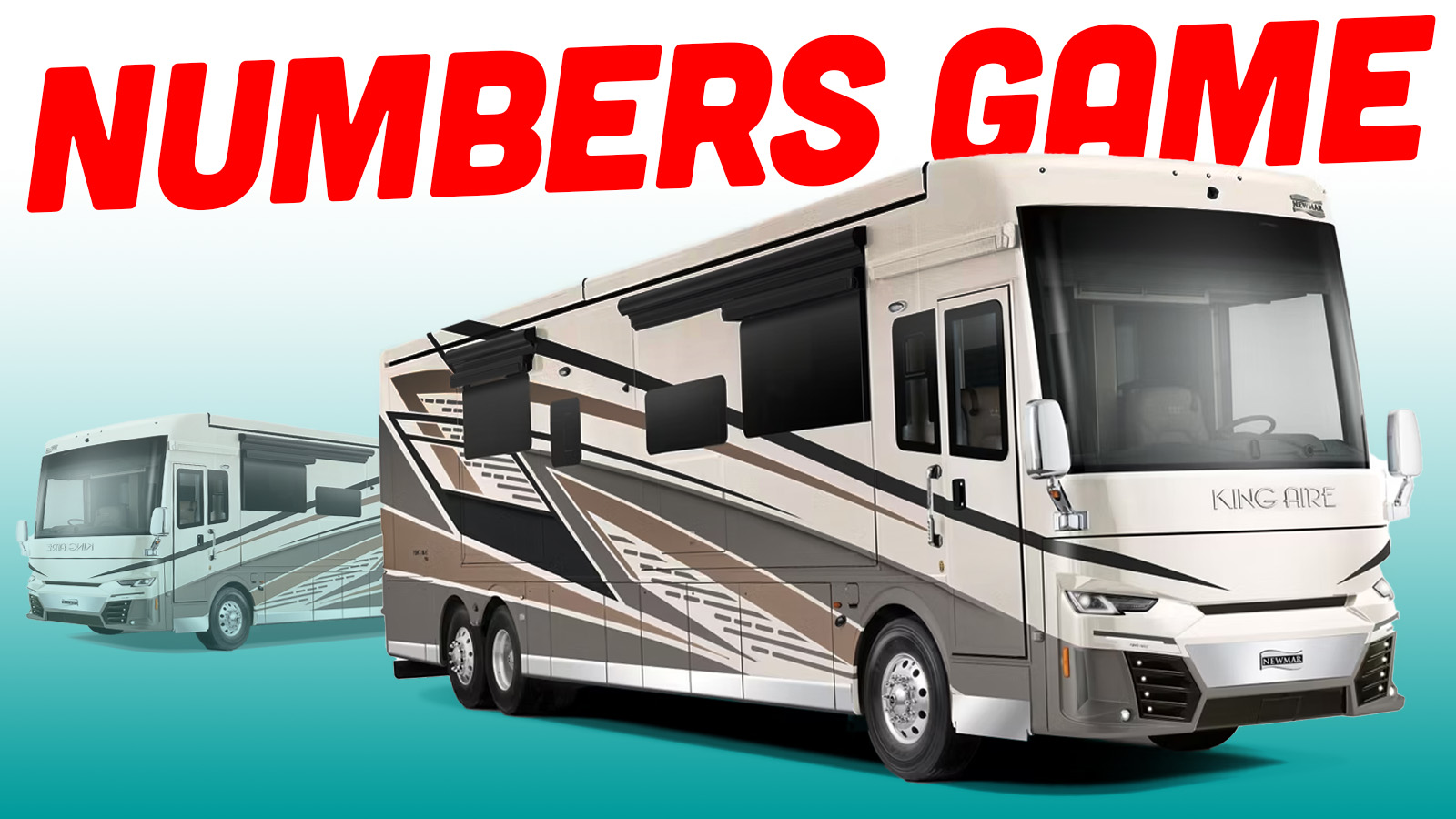




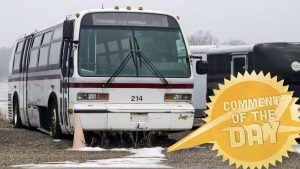
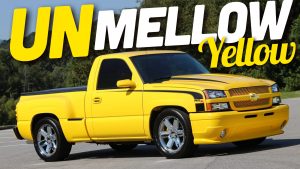

RV Owners Everywhere: “I honestly have no idea how the fire started…”
My trailer VIN is etched on the frame, although I’ve never checked if it matches my title. Guess I’ll add that to my todo list (although I’m not planning to sell it anytime soon).
I feel like there’s sketchy behavior on all sides here:
I’m having a hard time finding a side to root for here.
wealthy people think the rules don’t apply to them simple as that. they think they can just wave their arms and tell their lacky’s to “figure it out” and then they will sue when they don’t get their way. it’s always somebody else’s fault not their own.
The really sad part is most of the time they’re right.
Wow, that’s a new one! It will be interesting to see just how widespread the VIN problem is.
I am not a huge RV fan (or a fan of huge RVs) but this continued focus on these has been impressive for Mercedes. Doubly so if changes happen.
Any day now this thing will appear in Clarence Thomas’s driveway.
I thought the same thing halfway through this! “You’re welcome, Clarence. Keep up the good work. Signed, Your favorite President….”
Gonna place the blame on both parties here.
That alleged VIN sticker just slapped on a cabinet or whatever is pathetic – there should logically be a 17-digit VIN stamped into the frame and a matching VIN fixed to a permanent location somewhere on the actual body. That’s the most basic thing, and if a manufacturer can’t even get that right it doesn’t inspire confidence that they’re doing everything else right, either.
I also blame the owner for trying to skate around the law. He was informed ahead of time there was a VIN issue and it wasn’t legal for import. He could’ve just tried to figure this whole thing out before selling it, but decided to be sketchy and import it a second time, but this time to Florida, who it’s well known will issue titles for anything with wheels and a seat.
Both parties are trying to do shifty things they know they shouldn’t and got caught – everything is as it should be.
Didn’t you read the entire article, or did your brain glitch too much?
In Newmar’s units, the chassis VIN is permanently affixed behind the driver side seat on the column in each unit. As a courtesy, the chassis VIN number is also located on labels in the kitchen and closet. The stickers are designed to be tamper resistant and leave evidence of removal and are therefore considered permanent.
Great article, Mercedes!
This could have been AVOIDED if Newmar had specified (as part of their purchase agreement) that Spartan stamp the full 17-character VIN into the frames. Or Spartan could have, just as a matter of policy, insisted that they WILL stamp the full VIN on all chassis that they sell (to any final-stage manufacturer, not just Newmar). In either case, what would that have cost? An extra $0.02 per chassis? Recognize that Spartan, as the “Incomplete Vehicle Manufacturer” is not required to do this; this problem is Spartan’s.
BUT, that ship sailed, and now the problem is out there on the road, perhaps for decades. It sounds like the fix for RVs already in the field is that Newmar (and perhaps other RV manufacturers) is going to have to conduct a recall, and have all owners bring their RVs in to have the VIN marking revised. They can’t just mail out a few new tamper-evident labels, and tell owners where to affix them. This work is going have to be done by the manufacturer (authorized dealers count as “the manufacturer”, so all RVs would not have to go back to the factory.).
That’s going to cost Newmar a LOT of money; so another fun example of “Lo barato sale caro.”
My fingers worked faster than my brain… I meant to say, “…; this problem is NEWMAR’S.” in the first paragraph.
Really good stuff here, Mercedes. I’m not an RV guy as my wife doesn’t really get them. There’s a Sprinter near us that’s really done up nice and she thought maybe we ought to get one until she realized that an RV trip doesn’t involve driving from one hotel to another while baking cookies in the vehicle – you actually camp in them. That ended that. But even if I never buy one, this is pretty important information for everyone that will. Great reporting!
Thanks: “…until she realized that an RV trip doesn’t involve driving from one hotel to another while baking cookies in the vehicle – you actually camp in them.”. That got a full out chuckle from me.
Very good article Mercedes. I have to say, the RV industry seems to be the most fucked up industry that involves a motor and wheels, or even just a motor. I could never in my life buy one of these and feel like I made a smart move.
Probably why they stopped inviting you to shows! The truth of this industry is greed, finger pointing and horrible quality final products, and they don’t like the light shined on them.
1: It wouldn’t surprise me if an RV maker cut corners on something like this and NHTSA didn’t catch that it didn’t meet (the largely enforced with the expectation of manufacturers self regulating) FMVSS rules until now.
2:
Unless I’m misreading something here about how events went down, he essentially was smuggling it into the country to sell it in the US in a state known for washing titles after he had already been stopped by customs over a VIN issue once; and not even at the same crossing. He wasn’t unaware of shit; not the least of which being because the first time he tried to sell it in the US he specifically tried to do it legally through a broker.
A good followup would be to investigate exactly what the Florida dealer was planning, too. “The dealership and Newmar handle the rest” almost certainly means the Florida dealer would flip it on someone as if it was kosher; and let that guy hold the bag if/when ICE came looking for it.
I just talked with Steve Lehto, and apparently, he got in contact with the Florida dealer. So we’ll soon see the Florida dealer’s side of the story.
1- Most camp grounds and National Parks have CABINS !. Buy a Rolls-Royce; stay in cabins and be ; oh i dont know; a million dollars ahead.
2- If the first try to sell cross border in AZ was a fail; I d sell it in Canadia. But thats just me and I stupid.
What utter toss.
This is a TL; DR article. So, I didn’t.
The concept of $1.35M RV stuns me. Are those CAD or USD? 1.35M CAD = ~1M USD.
Either way, that’s more than 2x the worth of any property I’ve ever owned and just seems ridiculous. I guess if they can afford that, they can hire attorneys/solicitors who can just drive up the cost of resolving this situation. First world issues.
The initial money put up for this road monstrosity and what it will take to sort it all out could have been put to so much better use.
Give 900K USD to World Vision or Oxfam or any number of other charities, fly to Africa, buy a beat-up Mercedes or Peugeot, drive around and see how many people whose lives that money made so improved would make me feel a lot better of how the money was spent.
Zero sympathy.
Guess your brain glitched when reading the article…
“This story involves Canadian RVers Brian and Jennifer, who purchased a Newmar King Aire 4531 in 2022 for the equivalent of 1,350,000 USD.”
I guess so. Not the first time…
This isn’t making a lot of sense. Where’s the money angle in not having a VIN?
And besides, this is the RV industry famous for non-quality. And that’s on the easily visible stuff. We’re surprised that they forgot a couple of VIN stampings on the chassis? Cmon now.
As far as the “import” it’s not the first time a seller has misrepresented something as something else. Just need to check Facebook marketplace on any given day.
It’s likely less of a money angle and more of a “we’ve done it this way for decades and nobody’s said anything so it’s probably fine” type angle.
I’d be inclined to go with that as well. Building a vehicle on top of an externally-supplied chassis is going to be a situation ripe for mistakes and oversights. If the vehicle stays in the country where it’s sold to the first owner, there’s probably never enough scrutiny to turn up discrepancies. Exporting/importing changes everything.